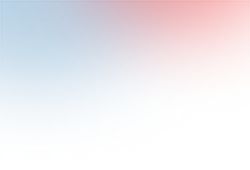

Dr. Leila Pakzad, P.Eng.
Title
ProfessorCampus
Thunder BayOffice
CASES B., FB 2018Phone
(807) 343-8010 ext. 8583Academic Qualifications
PhD, Chemical Engineering
MSc, Chemical Engineering
MSc, Chemical Engineering
BSc, Chemical Engineering
Research Interests
I am currently working on multiphase flows. This research program has been developed into two streams: (1) gas-liquid flow inside the mixing tank and bubble column with the main applications in the wastewater treatment industry; and (2) liquid-liquid flow inside the mixing tank and oscillatory baffle column (OBC) with the main applications in pharmaceutical and biochemical industries. Our processes are involved non-Newtonian fluids, and the impact of the rheological properties of fluids has been thoroughly investigated.
Funding from additional sources, such as NSERC Discovery Grant, Canada Foundation for Innovation and Lakehead University (LU), led me to establish a multiphase flow research (MFR) laboratory at LU, located in the CASES building, FB2017. The MFR lab comprises experimental and computational fluid dynamics (CFD) numerical sectors. The former sector is equipped with an electrical resistance tomography (ERT) system, a mixing tank with different types of impellers, an OBC, a SOPAT (smart online particle analyze technology) probe, and an NGI (next-generation pharmaceutical impactor) system, which serves as a platform to run experiments in the area of multiphase flow. The experimental results, including quantitative and qualitative ones in the experimental sector, are supported by simulation results applying ANSYS/Fluent. The CFD numerical sector features six supercomputers and 25 academic ANSYS/FLUENT licenses, employing LU’s high-performance computing (HPC) cluster and Niagara supercomputers for simulations.
I, along with my graduate students, applied the MFR facilities to fundamentally investigate the behaviour of solid/liquid/gas multiphase systems. We also evaluated the individual and interactive effects of the design parameters and operating conditions in different multiphase systems, such as mixing tanks, bubble columns, spray nozzle tanks, and OBCs. In all projects in my research program, the focus was on the particles’ (liquid droplets, bubble gas, and/or solid particles) motions through Newtonian or non-Newtonian fluids. The primary outcomes were particle size and size distribution since these properties strongly affect the goal of each process. The factors that cause particles to change their sizes have also been investigated. The results from my research studies range from designing a novel and energy-efficient impeller to developing comprehensive CFD multiphase models.
In my five years of intensive experimental and numerical research studies, I have developed a general methodology to design and/or optimize multiphase systems. This achievement guided me to expand my research program into a specific application of multiphase flow in the field of inhaled pharmaceutical aerosols- gas-borne suspensions of liquid or solid particles. Thus, I applied my expertise in fluid dynamics, specifically in multiphase flow, to solve some of today’s most pressing healthcare problems—”drug delivery”— by conducting research to develop innovative respiratory inhalers. Since 2020, I have employed CFD modelling and simulations to develop CFD models of aerosol particles delivery systems in the mouth-throat airway using two types of inhaler devices: (i) pressurized metered dose inhaler (pMDI); and (ii) soft mist inhaler (SMI). Recently, I employed an NGI system to determine optimal delivery systems to enhance the performance of the inhaler devices in terms of improved drug aerosol deposition and increased capacity utilization.
Teaching
Undergraduate Courses
- Process Control Fundamentals, ECHE 4152
- Process Control Applications and Process Safety, ECHE 4333
- Introduction to Industrial Chemical Processes, ECHE 1150
- Chemical Reactor Design, ECHE 4150
- Chemical Engineering Thermodynamic, ECHE 3434
Graduate Courses
- Rheology, ECHE 5110
- Advanced Fluid Dynamics, ECHE 5653,
- Air Pollution Control Methods and Analysis, EENV 5152
Service Courses
- Research Methods and Communications, ENGI 5013
- Analysis A, ENGI 3021
- Dynamics, ECIV 1111/EMIC 1111
Service
- Program Coordinator, Master of Environmental Engineering
- Program Coordinator, Master of Chemical Engineering
- Guest Editor, Processes, Complex Fluid Dynamics Modelling and Simulation
- Review Editor for Frontiers in Drug Delivery